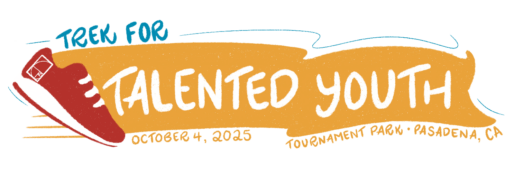By Laurie Mittermiller
In 2016, the Institute for Educational Advancement commissioned a national survey to gauge how the American public views gifted education. The results of that poll demonstrate that there is “overwhelming support for gifted education” among Democrats, Independents, and Republicans alike.1 While there have been some recent gains in funding for programs that affect gifted students, funding allocated for gifted children specifically remains only a small fraction of the federal budget.2 Meanwhile, other countries around the world have also recognized the importance of fostering the development of their gifted youth and have implemented a wide range of policies and programs to support their gifted students.3
Since most Americans agree on the importance of gifted education, the question is not “should we increase funding for gifted education,” but rather how can we effectively support gifted education with increased funding and resources? According to leading advocates for gifted education, some of the most important steps we can take as a country would be (1) to ensure that all qualified students have access to gifted programs and resources, regardless of their zip code, (2) to provide appropriate training for teachers who work with gifted students, and (3) to allow gifted students to learn at their own pace.
Gifted children come from all socioeconomic backgrounds, geographic areas, and cultures, but often culturally and linguistically diverse (CLD) gifted students are underrepresented and underserved.4 Not only do these students deserve the opportunity to reach their own personal potential, but our country stands to gain more influential scientists, artists, inventors, and entrepreneurs if their talents are identified and fostered. In order to provide the appropriate opportunities and support for these students, the National Association for Gifted Children (NAGC) makes the following recommendations:
- Use culturally sensitive identification protocols
- Provide early and continuous advanced curriculum
- Provide social and emotional support
- Build home, school, and community connections
- Focus research on equity issues
Gifted children are unique individuals and, as such, their academic, social, and emotional needs can be quite different from other student populations. Although giftedness can be difficult to define, in 1991, the Columbus Group wrote: “Giftedness is asynchronous development in which advanced cognitive abilities and heightened intensity combine to create inner experiences and awareness that are qualitatively different from the norm. This asynchrony increases with higher intellectual capacity. The uniqueness of the gifted renders them particularly vulnerable and requires modifications in parenting, teaching, and counseling in order for them to develop optimally.” Bearing in mind that gifted children often require highly specialized attention due to their unique developmental patterns, it is imperative that their teachers receive the appropriate training so they can best meet their gifted students’ varied and asynchronous needs. Given that most gifted children are currently in general education classrooms, the NAGC recommends that all teachers should be able to:
- Recognize the learning differences, developmental milestones, and cognitive/affective characteristics of gifted and talented students, including those from diverse cultural and linguistic backgrounds, and identify their related academic and social-emotional needs
- Design appropriate learning and performance modifications for individuals with gifts and talents that enhance creativity, acceleration, depth and complexity in academic subject matter and specialized domains
- Select, adapt, and use a repertoire of evidence-based instructional strategies to advance the learning of gifted and talented students5
At IEA, we believe that all children deserve to learn something new every day. This can be a challenge in a general education classroom when a gifted student has already largely mastered the skills and content at that grade level. In these cases, allowing gifted students to learn at their own pace through acceleration of content, or even grade-skipping would ensure that they are finding their “optimal match.” One common misconception is that students will struggle socially if they skip grades, but in fact, the opposite is true. Gifted children thrive when given opportunities to engage with intellectual peers, who, for gifted individuals, are not necessarily the same age. In fact, some of the most influential American leaders had the opportunity to accelerate their learning, from Sandra Day O’Connor graduating from high school at 16 years old to Martin Luther King, Jr. graduating high school at only 15 years old.6
John F. Kennedy once said, “All of us do not have equal talent, but all of us should have an equal opportunity to develop our talent.” When we provide the appropriate support and educational opportunities for our gifted and talented children, we all stand to gain from their success.
SOURCES
2 https://www.nagc.org/blog/what-gifted-advocates-need-know-about-federal-budget
3 https://www.watg.org/news-from-the-board/gifted-issues-internationally-nationally-and-locally
4 Identifying and Serving Culturally and Linguistically Diverse Gifted Students
6 http://www.accelerationinstitute.org/Resources/ND%20Poster.pdf



